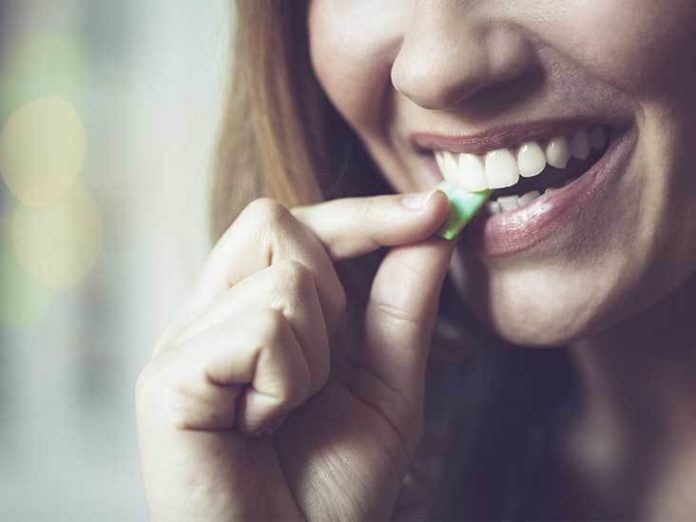
Why do garlic and onions affect your breath so much?
Everyone gets bad breath sometimes. Many things, from the foods you eat to underlying health conditions, can cause bad breath (halitosis). Two of the worst culinary offenders are garlic and onions, especially when eaten raw.
Onions and garlic are members of the allium family. They are similar in composition and contain many of the same sulfur compounds. Sulfur compounds give foods their distinctive flavor. They also release distinctive gasses when cut or mashed, and mingle with gas-emitting bacteria, causing a certain scented breath.
Garlic and onion can continue to cause bad breath for hours after eating. As part of the digestive process, their byproducts are absorbed into the bloodstream and carried to the lungs, giving bad breath an encore.
But bad breath is no reason to avoid garlic and onion. Their health benefits are worth it, and it’s possible to counteract their smelly effect.
1. Try eating fresh produce like apples, spinach, or mint
If you’re having a particularly garlic-heavy meal, eat apples for dessert or chew on fresh mint leaves. One study indicated that the chemical makeup of raw or heated apples, lettuce, or mint helped deodorize garlic breath. Hot green tea and lemon juice may also help.
2. Brush and floss after eating
Much of the bacteria that causes bad breath lives below the gum line and in plaque build-up on teeth. Brushing and flossing after eating onions or garlic can help eliminate odor-causing bacteria, plus food residue. Using an electric toothbrush can help you to brush below the gum line, and reduce plaque. This keeps breath fresher for a longer period of time. It’s also helpful to gently brush the roof of your mouth and your tongue, as far back as a toothbrush will go. For on-the-go situations, try keeping floss that fits in your wallet.
3. Use a chlorine dioxide mouthwash
There is some scientific evidence that mouthwashes containing chlorine dioxide are effective for bad breath. Chlorine dioxide can help remove plaque, tongue-coating bacteria, and food particles. This is the same ingredient used to purify and improve the taste of outdoor water when camping.
You can get chloride dioxide mouthwash on Amazon here. Mouthwash usually works best after brushing and flossing. It’s also important to note the instructions on the bottle to avoid overuse or mouth irritation.
4. Use essential oils
Essential oils are often added to alcohol-based mouthwashes. In addition to freshening breath, some also have antibacterial properties. You can also make your own homemade mouthwash with essential oils and a carrier oil (coconut, sweet almond, or olive). Essential oils with proven benefits for eliminating bad breath include:
peppermint
rosemary
myrrh
eucalyptol
Swish 1 teaspoon of carrier oil with a drop of peppermint oil in your mouth to help get rid of food particles, bacteria, and odor. Purchase food-grade peppermint oil in your local grocery store or online. Be sure to watch out for added sugars.
5. Try tongue cleaners
Bacteria also thrive and multiply on the back of the tongue where your toothbrush can’t reach. A white tongue can indicate dead cells, microscopic food particles, and bacteria. Tongue cleaners, such as tongue brushes and scrapers, can help you reach the very back of your tongue. They’re also effective for removing odor-causing residue.
To use a tongue scraper, start at the back of your tongue and gently scrape forward. This will bring the white residue to the front of your mouth. Continue to rinse and repeat this process until there is no visible residue on the scraper. You can use this daily or after eating meals containing garlic or onion.
6. Drink diluted apple cider vinegar
Apple cider vinegar contains pectin, which supports the growth of good bacteria. Drinking 1 to 2 tablespoons of apple cider vinegar in a glass of water, prior to eating garlic or onions, may help flush their byproducts through your system more quickly. It also aids digestion.
You can drink a very diluted solution after your meal. Or swish it in your mouth for 10 or 15 seconds after eating as a mouth rinse.
7. Drink green tea
Drink a hot cup of green tea after a meal to temporarily reduce odor until you can get to the bathroom to brush your teeth.
In one study, 15 participants used a green tea catechin mouthwash and found it comparable to antiseptic mouthwash for antiplaque effectiveness. In a different test tube study, green tea and toothpaste were more effective than parsley oil, chewing gum, and mints.
8. Chew spearmint gum
Chewing spearmint gum can temporarily neutralize garlic breath. It also may reduce acid reflux, which can diminish the lingering effects of garlic and onion after digestion.
Takeaway
Garlic breath doesn’t last forever, even if its effects tend to linger. Plan ahead if you feel like you might be at risk for garlic- or onion-heavy breath. Avoid an onion bagel for breakfast before a job interview or important meeting. Or you can experiment with these home treatments to see which one works for you. Take the one that does the trick with you on the road.
Culled from Health Line















